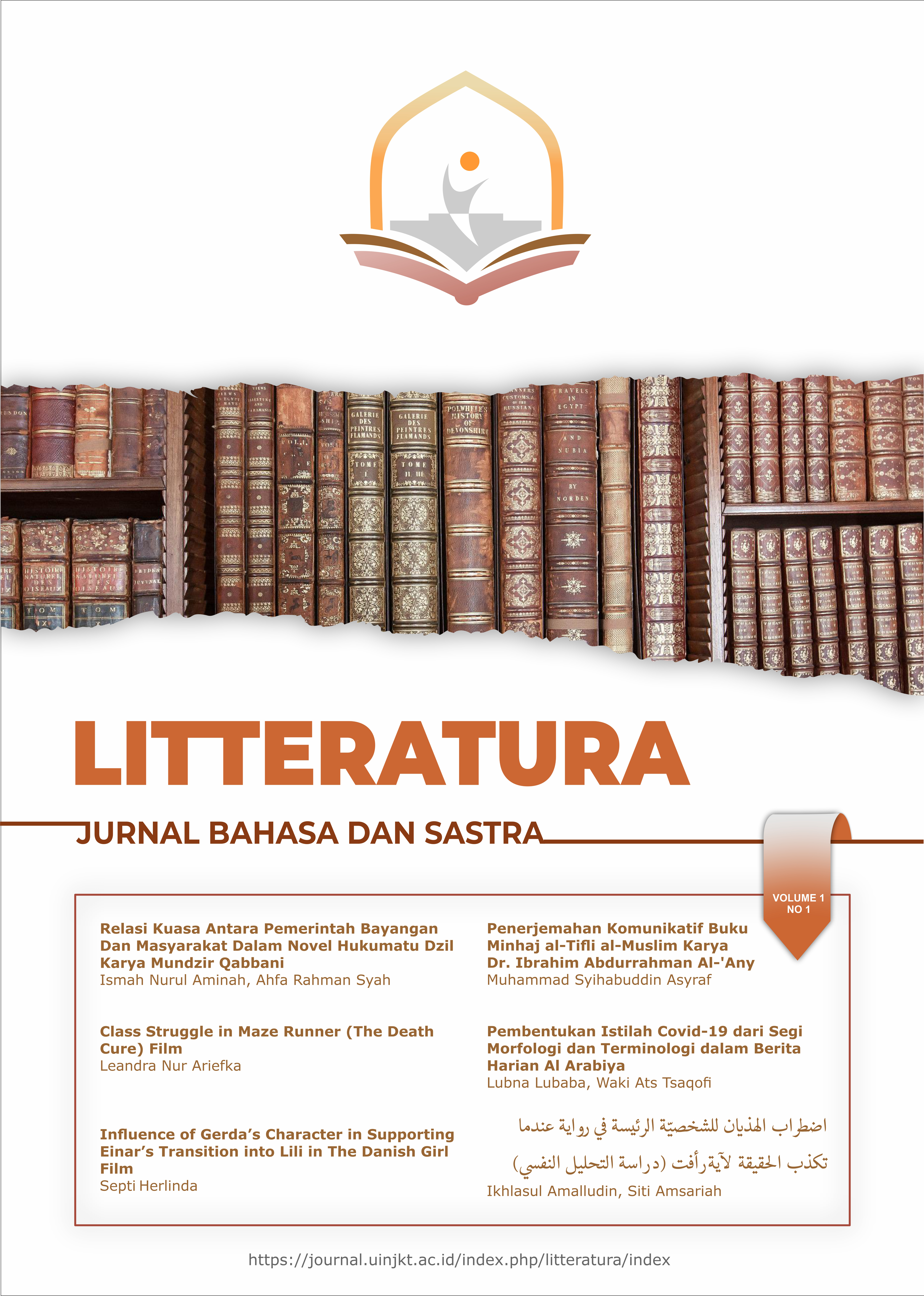Orientalism from a Postcolonial Perspective in the Novel Saffron Dreams by Shaila Abdullah
DOI:
https://doi.org/10.15408/ltr.v3i2.30169Keywords:
Saffron Dreams, Orientalism, Postcolonialism, Identity, AdaptationAbstract
Saffron Dreams, written by Shaila Abdullah, is an intriguing work of fiction that tells the story of the harsh life of a Muslim woman from the East in America after the 9/11 tragedy. The double standards applied by America are not only limited to views of Muslims but extend to Eastern cultures as a whole. It is here that the Western perspective of the East, known as Orientalism, is portrayed as though the West is superior to the East. This study examines how American Orientalism and Postcolonialism influence and shape the identity dynamics of Arissa Illahi. This research employs a descriptive and qualitative method, using Edward Said's theory of Orientalism. The findings show that Arissa experiences various dynamics related to her identity, which is based on Islamic-Pakistani culture. Orientalism, within the context of American Postcolonialism, disturbs her identity as a Pakistani Muslim, leading to a series of crises and efforts at adaptation full of uncertainty. Arissa's character plays a crucial role as a representation of Muslim women, depicting the struggle of Eastern Muslim women fighting for their rights as human beings. Her struggle serves as a means of confronting Western Orientalist views, demonstrating solidarity with Muslim women from third-world countries living in America.
References
Alghamdi, S. (2020). Orientalism and Its Challenges: Feminist Critiques of Orientalist Knowledge Production Sameha Alghamdi. YORK UNIVERSITY TORONTO, ONTARIO, December.
Barry, P. (2017). Beginning theory an introduction to literary and cultural theory-Manchester university press (4th ed.). Manchester University Press.
Katherine Huiskes. (n.d.). THE SEPTEMBER 11 TERRORIST ATTACKS. UVA Miller Center.
M.Rajenthiran1, D. K. R. V. (2022). Survival Struggles in Shaila Abdullah ’ Saffron Dreams ; A Neo-Orientalist Perspective. INTERNATIONAL JOURNAL OF INNOVATIVE RESEARCH IN TECHNOLOGY, 8(10), 611–615.
Maggi, D. (2020). Orientalism, gender, and nation defied by an Iranian woman: Feminist orientalism and national identity in Satrapi’s Persepolis and Persepolis 2. Journal of International Women’s Studies, 21(1), 89–105.
Majeed, S., Zaidi, N. A., & Waheed, D. Z. (2017). Saffron Dreams-a Journey of Evolving Identity. Al-Burz, 9(1), 30–54. https://doi.org/10.54781/abz.v9i1.102
Maliyana, Y. (2013). Edward Said’s Orientalism and the Representation of the East in Gardens of Water by Alan Drew. Passage, 1(1), 1–8.
Phillips-Fein, K. (2007). The 9/11 Commission Report. In Radical History Review (Vol. 2007, Issue 97). https://doi.org/10.1215/01636545-2006-022
Shabanirad, E., & Marandi, S. M. (2015). Edward Said’s Orientalism and the Representation of Oriental Women in George Orwell’s Burmese Days. International Letters of Social and Humanistic Sciences, 60, 22–33. https://doi.org/10.18052/www.scipress.com/ilshs.60.22
Shaila Abdullah. (2009). Saffron Dreams. Modern History Press.


